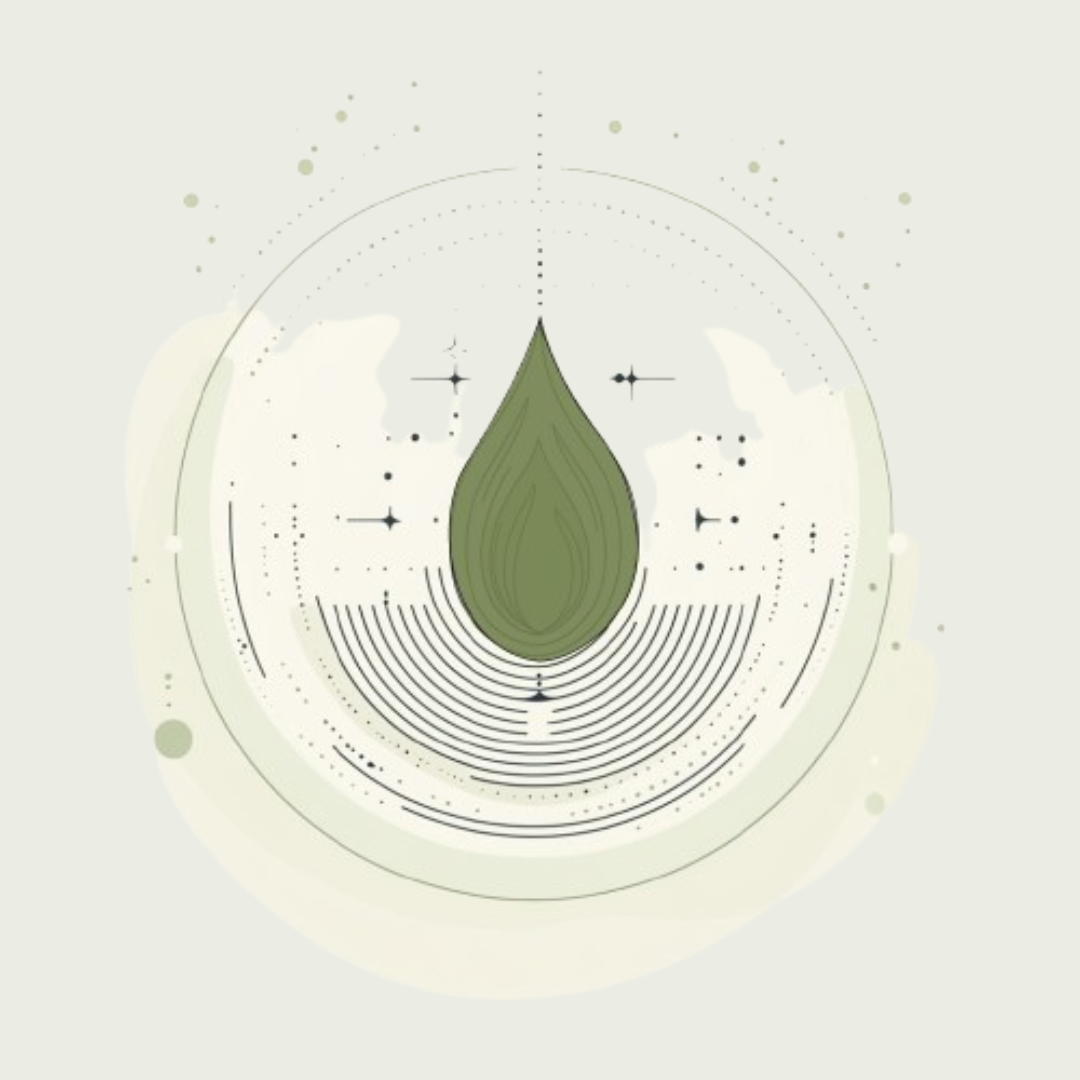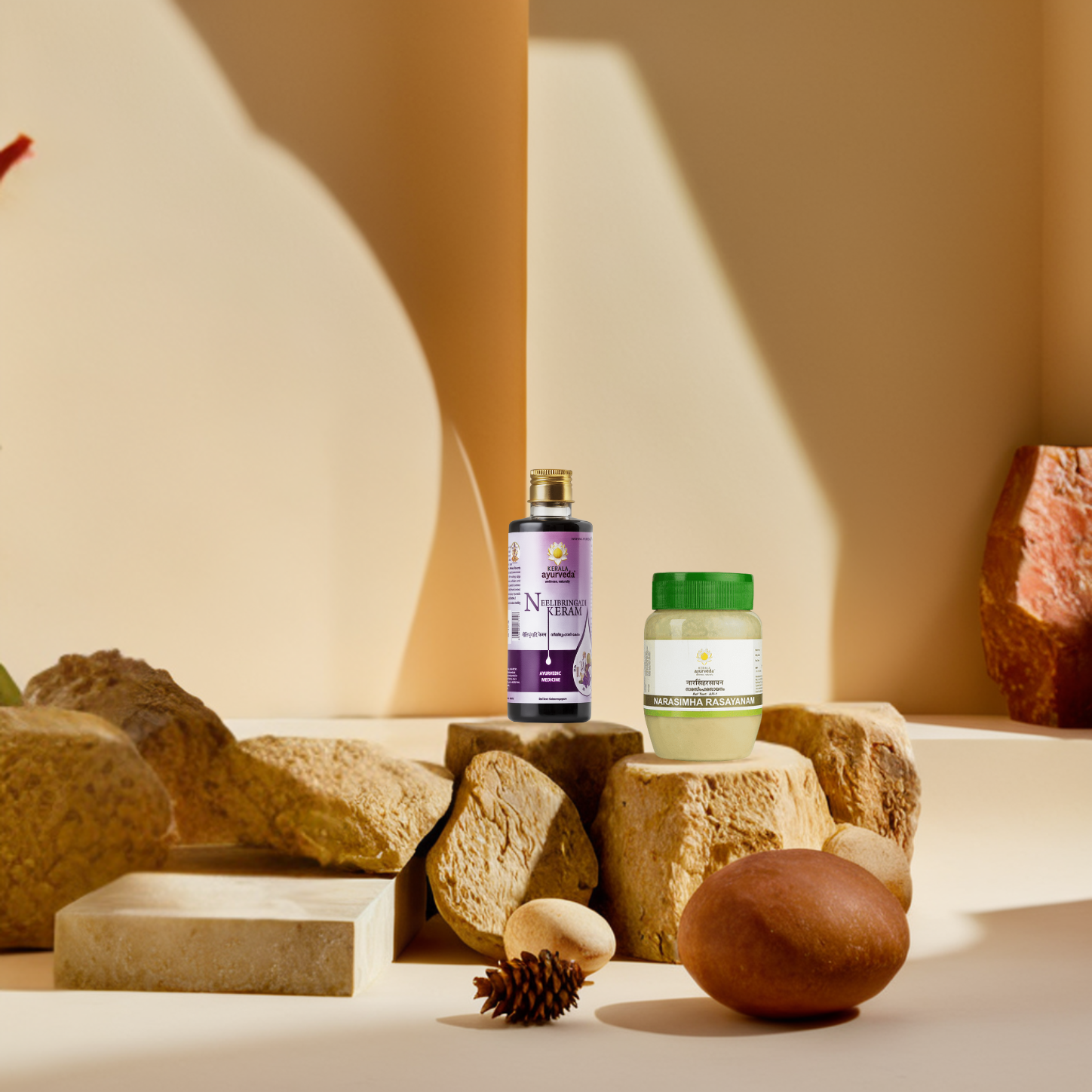Highlights
The monsoons are finally here! And while it’s such a relief to say goodbye to the blazing summer heat, let’s be real, this season brings its own set of not-so-fun guests. You know, those pesky colds, random skin flare-ups, sneezing fits, and that never-ending cough. The mix of high humidity and cooler weather tends to mess with our system a bit, doesn’t it? Stuffy noses, itchy skin, and even those annoying eye allergies can suddenly show up.
Well, this is where Ayurveda steps in like a wise old friend. With the right food, simple lifestyle tweaks, and natural remedies, it’s totally possible to feel great even during the wettest months.
In this blog, we’ll take a closer look at some simple Ayurvedic tips that can help you get through the monsoon, feeling more balanced, refreshed, and totally in sync with the season.
Varsha Ritu in Ayurveda: What Happens to Your Body During Monsoon?
According to Ayurveda, the year is actually divided into six seasons, or ritus, from Sisira (late winter) to Hemanta (early winter). The monsoon season is called Varsha Ritu, and it runs from around mid-July to mid-September. This time falls under a phase called Dakshinayana or Visarga Kala (when the sun starts moving south), and includes Varsha, Sarat (autumn), and Hemanta (early winter).
During this rainy season, our bodies slowly regain strength after the summer and prepare for the colder months. But our digestion and metabolism (Agni) take a bit of a hit. Everything slows down, giving Ama (or toxins) a chance to build up in the body. Plus, the Vata dosha tends to get unsteady, and the Pitta dosha also starts piling up.
The dominant tastes and elements in the environment during this time are sour (amla), earth (Prithvi), and fire (Agni). Since our inner strength (bala) dips a little, following the right seasonal routine becomes super important. Ayurveda recommends certain habits during this time to help boost metabolism, keep toxins in check, and stay healthy, inside and out.
Many people also notice a spike in health issues during this season. These aren’t just random occurrences; Ayurveda links them to the way the body's internal balance shifts with the rains.
Common Monsoon Allergies and Their Ayurvedic Causes
While the monsoon brings relief from the heat, it also stirs up a few health concerns. So let’s talk about those common allergy issues that show up every monsoon and how Ayurveda can help you deal with them naturally.
1. Respiratory Allergies
Rain helps settle dust and pollen, but the extra moisture and less sunlight can actually trigger respiratory allergies. So, it’s best to avoid cold water and drink lukewarm water boiled with tulsi and other warming herbs instead. Stick to fresh, light, and nourishing foods like soups and khichdi, and try to avoid curd and fermented foods for now.
Drinking Ayurvedic kadhas can further boost your immunity. Also, maintain good hygiene and change your bedding once a week to avoid allergens.
Allergic rhinitis is pretty common during this time, causing sneezing, nasal congestion, and itching. A simple mix of black pepper, ginger, and honey can really help ease these symptoms.
2. Skin Allergies, Eczema
During the monsoon, the high humidity can make your skin more prone to rashes and allergies. Sweating a lot may lead to fungal infections, which cause itching and redness. If you come into contact with contaminated water, there is also a risk of scabies, tiny parasitic mites that cause intense itching and rash. So it is best to avoid dirty water and keep your distance from infected people.
Sudden temperature changes can also worsen eczema, so wear light and comfortable clothes, and massage your body with warm coconut oil mixed with a pinch of turmeric. Another great option is Kerala Ayurveda’s Nalpamaradi Keram, which is a face and body oil that helps fade tanning and, with the soothing power of turmeric, relieves eczema irritation.
3. Insect Bite Allergies
During the monsoon, insect and mosquito bites can be pretty annoying. They often cause itching and redness that feels worse than usual. A simple way to calm that irritation is to use fresh turmeric paste and tulsi leaves.
Also, natural mosquito repellents like citronella oil work great to keep those annoying bugs away. If you want to go a step further, you can fumigate your home using herbs like Guggulu (Commiphora mukul), Agaru (Aquilaria agallocha), and Chandana (Santalum alba). These herbs have natural insect-repellent powers and can help keep your space mosquito-free.
Knowing the root cause is just the start. What really counts is how you support your body during the season with simple, time-tested Ayurvedic remedies.
Ayurvedic Remedies for Monsoon Allergy Symptoms
Monsoon brings much-needed relief from the heat but also stirs up many allergies. Here are some simple and effective Ayurvedic remedies to help you stay allergy-free this monsoon:
1. Nasal Cleansing with Anu Thailam
If you’re dealing with stuffy sinuses or allergies, adding nasya to your daily routine can really help. Anu Thailam from Kerala Ayurveda is also a great pick. It clears out excess mucus, keeps your sinuses happy, and helps prevent allergy flare-ups. Just skip it if you have a fever or a completely blocked nose.
2. Chest Relief with Ajwain-Kalonji Potali
Dry roast 2 tablespoons each of ajwain and kalonji, wrap them in a clean cloth to make a warm potali, and gently press it over your chest and sinus area for relief.
3. Steam Support with Karpooradi Thailam
For instant relief from nasal blockage, rub a little Karpooradi Thailam on your chest and follow it up with steam inhalation. It opens up the sinuses and helps you feel more relaxed and clear-headed.
4. Nighttime Immune Boost with Haldi Milk
A glass of warm turmeric milk at bedtime feels like a hug from the inside. Mix in ¼ teaspoon of turmeric and a tiny pinch of black pepper into warm milk and sip slowly. It’s a cozy, immune-boosting bedtime ritual.
5. Immune-balancing Amla Mix
Mix 1 teaspoon of fresh amla juice with a little honey and grated ginger. This tangy tonic helps your body better handle seasonal changes.
6. Soothing Skin Paste for Insect Bites
If insect bites bother you, make a paste with neem leaves, tulsi, and turmeric. It quickly cools down the itching and swelling, and it’s packed with anti-inflammatory goodness.
7. Omega-3 Power with Nuts and Flaxseeds
Give your meals an easy immune upgrade by tossing in some flaxseeds and a handful of mixed nuts. The omega-3 fats in them help fight off inflammation caused by allergies.
8. Nasal Relief with Kalonji Oil
Kalonji oil works wonders when your nose won’t stop acting up. Apply a bit around your nostrils to ease nasal congestion and reduce sneezing. It’s especially helpful if allergic rhinitis is the issue.
9. Herbal Tea for Seasonal Balance
Boil tulsi leaves, coriander seeds, jeera, ginger, and black pepper in water, and add some jaggery if you like it. This tea helps keep allergies in check and also supports healthy digestion.
To support these remedies, Kerala Ayurveda has created special products designed to soothe and boost your body’s natural response to common monsoon allergies.
Recommended Kerala Ayurveda Products for Allergy Relief
If you're looking for reliable Ayurvedic products to manage allergy symptoms during the monsoon, Kerala Ayurveda has some great options to explore. These formulations use time-tested herbs to support your body naturally and gently.
1. Histantin (For quick allergy relief)
Kerala Ayurveda’s Histantin is a go-to when you're dealing with common allergy symptoms like a runny nose, watery eyes, itchy skin, or hives. It’s made with ingredients like Amla, Turmeric (Haridra), Giloy (Guduchi), Bamboo Silica (Vamshalochanam), and Green Chiretta (Bhunimba). This mix helps provide fast relief, especially when your allergies are triggered by seasonal changes or contact with skin irritants.
2. Vilwadi Gulika Paste (For insect bite reactions)
If you have severe itching or swelling after an insect bite, crushing Vilwadi Gulika or Vilwadi pills and applying them as a paste can work wonders. It soothes the skin and quickly reduces inflammation.
3. Imugest tablets (To strengthen immunity)
For those who are generally allergy-prone, Imugest is a good herbal supplement to include in your routine. It contains Haridra, Ashwagandha, and Guduchi, all herbs known for boosting your body’s natural defense and helping it respond better to allergens.
4. Winsoria oil (To calm skin flare-ups)
Winsoria oil is helpful for itching, redness, or skin irritation caused by eczema. It's safe to use on the scalp, too, especially when there’s dryness or flakiness. Just make sure to apply it only to the affected areas.
5. Nalpamaradi Keram (For full-body skin care)
If you want something for general skin protection during the monsoon, Nalpamaradi Keram is a great pick. It’s enriched with Nalpamara, turmeric, and other antibacterial herbs. It helps reduce tan and pigmentation while also keeping skin allergies at bay. For extra care, you can take a bath in water boiled with neem leaves to keep your skin clean and protected.
Combining these remedies with mindful daily tips can really help manage seasonal allergies effectively during the monsoon.
Ayurvedic Self-Care Tips for Seasonal Allergy Management
When the weather changes, especially during monsoons, our body tends to react in different ways such as sneezing, itchy skin, runny nose, or even fatigue. But small everyday choices can really help you manage those allergy symptoms naturally.
Here are some easy Ayurvedic self-care tips to feel better and stay balanced:
- Eat foods that calm your system: To keep Vata in balance during this season, include foods that are sour, salty, and nourishing. Things like aged rice, barley, warm soups, and even a little honey can help.
- Skip curd, sip whey instead: Curd tends to clog the system during this damp weather, so try drinking whey (the liquid left after making curd) after mixing in black salt and pepper.
- Ditch tea and coffee for herbal warmth: Ginger tea or tulsi tea is a great alternative for herbal warmth. You can also add warm spices like cloves, pepper, or nutmeg to your drinks or meals for that extra boost.
- Stay hydrated the right way: Drink warm, boiled water throughout the day. If you're feeling under the weather, take pulse-based soups, especially with green gram, to nourish the system. And if your digestion is strong, sipping a little aged wine with your meal is actually recommended in classical Ayurveda.
- Avoid sleeping during the day: Daytime naps can make you feel heavier and worsen allergy symptoms. Instead, try light movement, gentle yoga stretches, or go for a short walk if the weather permits.
- Manage stress with yoga and meditation: Just 15–20 minutes of breathing exercises or meditation daily can help you feel more grounded and calm.
- Keep your skin nourished: A gentle Ayurvedic oil massage (Abhyanga) helps keep the skin healthy and reduces irritation. Plus, it’s a great way to relax.
- Don’t walk barefoot during monsoon: Avoid walking barefoot, especially on wet surfaces. Keep your feet clean and dry, trim your nails regularly, and wear breathable footwear to prevent fungal infections.
Ayurveda doesn’t just treat allergies; it helps us understand the root cause and maintain balance through the seasons. Regularly following these tips can help you feel more in control and healthier, no matter what the weather is doing outside.
Conclusion
Monsoon definitely brings much-needed relief from the heat, but it also means we need to take a little extra care to stay healthy. Simple habits like sipping warm herbal water, enjoying light homemade meals, and using natural helpers like turmeric, tulsi, and coconut oil can make a big difference.
Still dealing with annoying seasonal allergies this monsoon? Why not talk with one of our expert Ayurvedic doctors and get natural, personalized advice that actually suits your body type? You can also explore our trusted herbal remedies that help boost immunity and ease allergy symptoms, gently and effectively. Just visit Kerala Ayurveda and let the healing power of Ayurveda help you breathe easily this season.
FAQs
1. Why do I get allergies during monsoon?
The monsoon season creates a perfect environment for allergens like mold, dust mites, and pollen to grow. The increased humidity and dampness can trigger your immune system to react, causing allergy symptoms.
2. How do you treat monsoon skin allergies?
Treating monsoon skin allergies usually means keeping your skin clean and dry to prevent fungal and bacterial infections. Kerala Ayurveda's Histanin tablets, Vilwadi pills, Winsoria oil, and Nalpamardi Keram help you avoid skin problems.
3. Why are allergy symptoms worse at night?
Allergy symptoms often feel worse at night because when you lie down, mucus can build up in your nasal passages, making breathing harder. Plus, your body produces more histamine in the evening, which can intensify symptoms like sneezing, itching, or congestion.





